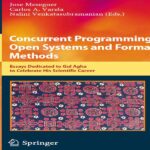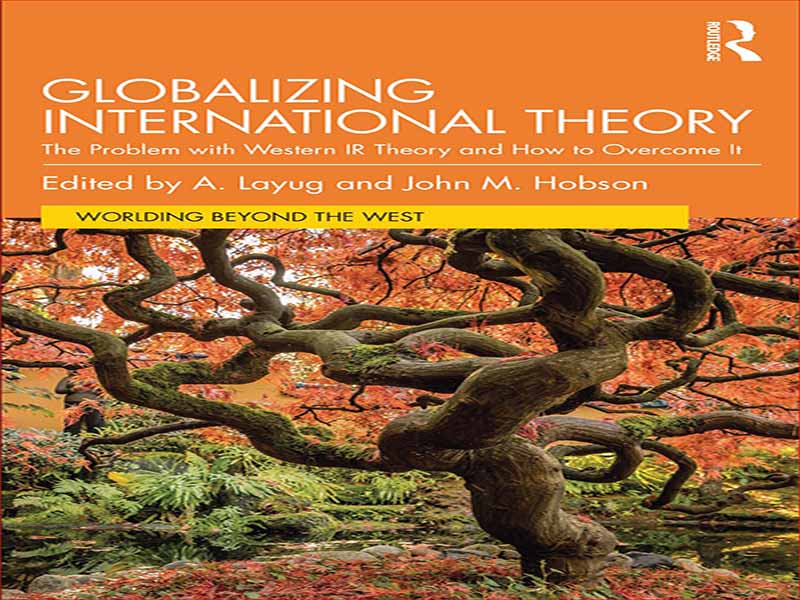- عنوان: GLOBALIZING INTERNATIONAL THEORY
- نویسنده: A.-Layug
- حوزه: روابط بین الملل
- سال انتشار: 2022
- تعداد صفحه: 278
- زبان اصلی انگلیسی
- نوع فایل: pdf
- حجم فایل: 3.11 مگابایت
تجلیل از «کثرت گرایی» نظریه بین المللی به یک رویه رایج در این رشته تبدیل شده است که به ویژه در بخش های انتقادی تر یافت می شود. چنین جشنی فرض می کند که فهرست گسترده ای از انتخاب های نظری وجود دارد که می توان از میان آنها انتخاب کرد. که تمام شده، کامل، بی طرف و بسیار متمایز هستند. این جلد با این فرض شروع می شود که نظریه بین المللی ناتمام، ناقص، جزئی/ذهنی و تا حد زیادی همگن است. ناقص و ناتمام است، زیرا برداشتی محدود یا نازک از بینالملل ارائه میکند که به نوبه خود، از تعصب جزئی یا محدود غرب محور آن (یعنی «اروپامحوری/نژادپرستی فرهنگی فرومایه» آن ناشی میشود. و جزئی و همگن است، زیرا در زیر ظاهر سطحی صدا و خشم رقابتهای نظری (و «مناظرههای بزرگ») حضور عمیق یک مرکزگرایی فراگیر غربی نهفته است. مفهوم پویایی سالم رقابتهای نظری در یک محیط کثرتگرا به چیزی شبیه یک توهم یا داستانی افسانهای تبدیل میشود که محققان روابط بینالملل (IR) دوست دارند آن را تعریف کنند، وقتی ما تشخیص دهیم که همه آنها در یک غرب-محور/ یکسان سهیم هستند. تصور نازکی از بینالمللی، به گونهای که این «درگیریهای مانوی» با بررسی دقیقتر به جز تغییرات جزئی در یک داستان منسجم در سمت غرب تبدیل میشود. در مجموع، معلوم میشود که تئوری IR یک مفهوم ذاتاً مغرضانه و نازک از بینالملل را در بر میگیرد که آن را برای همان وظیفهای که میخواهد به آن دست یابد ناکافی میکند و بر این اساس، در بهترین حالت ناتمام و ناقص است. بنابراین، در حالی که ارتدکس انضباطی مدعی است که رویدادهای سیاست جهانی را به شیوهای عینی و بدون ارزش توضیح دهد، معلوم میشود که بینش آن از جهان از طریق یک دریچه قطبیکننده غرب زده میشود که در آن غرب در کانون توجه قرار دارد. در پیشزمینه در حالی که غیرغربی در پسزمینهای تار گم میشود، در سایهای تاریک طولانی که توسط درخشش غرب سفید برتریگرای ریفآمیز ایجاد شده است. و به جای استفاده از مجموعه ای عینی از ابزارهای توضیحی برای تبیین سیاست جهانی، همانطور که محققان IR اعلام می کنند، واقعیت این است که نظریه ارتدکس IR فقط به ما می گوید که چرا غرب بهترین است و چرا «بقیه» باید مانند غرب شوند. در اصل، این بدان معناست که تئوری بینالمللی واقعاً بینالمللی نیست، بلکه صرفاً یک ولایتگرایی غربی است که به صورت بینالمللی/جهانی ظاهر میشود. در استانیسازی و از این رو جهانیسازی نظریه بینالمللی، این جلد از مرزهای اروپایی/نژادپرستانه/امپراتوری مفهوم نازک غالب بینالملل عبور میکند تا مشارکتهای پنهان در نظریه بینالمللی را که در جهان غیرغربی یافت میشود، بررسی کند. همانطور که ناتان اندروز و آیزاک اودوم بیان کردند، «عدم توجه و «بستن» میدان به صداها، بینش و جهان بینی «دیگر» است. . . منجر به چیزی میشود که ما آن را «نقص بازنمایی» در میدان مینامیم.2 و همانطور که آنها استدلال میکنند، حذف صداهای غیرغربی منجر به «ستم معرفتی» و «امپریالیسم معرفتی» میشود. آوردن مفاهیم غیرغربی حذف شده از نظریه بینالملل، ما را به برجسته کردن مفهوم غلیظی از بینالملل سوق میدهد. در اصل، جستوجو برای برداشتی غلیظ از بینالملل که فراتر از برداشت نازک و ارزشی بینالملل است که در نظریه غربی یافت میشود، پیامد منطقی یک حساسیت غیراروپایی/غیر نژادپرستانه است. و به این ترتیب، میتواند این رشته را از تکفرهنگ یا جهان نظری غربمحور خود دور کند و به یک کثرت نظری واقعی تبدیل کند. بینالمللی، که ما را به مسیر جهانی شدن نظریه بینالمللی هدایت میکند، بنابراین صرفاً یک تجملات عجیب و غریب نیست که بتوان آن را به فهرست «گسترده» انتخاب نظری تئوری IR غربی اضافه کرد، با توجه به اینکه چنین پلورالیسمی توهمآمیز است. که منو بسیار محدود است. در عوض، ما معتقدیم که می تواند چیزی را ارائه دهد که در اکثر جریان اصلی و حتی بخش های مهم نظریه انتقادی IR وجود ندارد. و علاوه بر این، ما معتقدیم که نیاز فوری به آن وجود دارد – که توسعه آن یک ضرورت قطعی است. زیرا این رواج تک گویی نظری نژادپرستانه فرهنگی اروپامحور یا ناآگاهانه است که راه را به سوی یک تصور جهانی شده، غلیظ و چندگانه از نظریه بین المللی می بندد.
It has become a common practice of the discipline, found particularly in more critical quarters, to celebrate the ‘pluralism’of international theory. Such a celebration presumes that there is a wide menu or smorgasbord of theoretical choices to select from, all of which are fnished, complete, impartial and highly diferentiated. This volume starts with the premise that international theory is unfnished, incomplete, partial/subjective and largely homogenous. It is incomplete and unfnished because it provides a limited or thin conception of the international which, in turn, derives from its partial or narrow Western-centric bias (i.e., its ‘subliminal Eurocentrism/ cultural racism’). And it is partial and homogenous because underneath the surface appearance of the sound and fury of theoretical contests (and the ‘Great Debates’) lies the deep presence of an all-pervasive unifying Western centrism. The notion of a healthy dynamic of theoretical contestations within a pluralistic setting becomes something of an illusion, or a mythical story that international relations (IR) scholars like to tell, when we recognize that they all share in a uniform Western-centric/ thin conception of the international, such that these ‘Manichean clashes’ turn out under closer inspection to be but minor variations on a consistent West Side Story. All in all, IR theory turns out to embrace an inherently biased and thin conception of the international which renders it inadequate to the very task that it purports to achieve and that, accordingly, it is unfnished and incomplete at best. Thus, while the disciplinary orthodoxy purports to explain the goings on of world politics in an objective and value-free manner, it turns out that its vision of the world is projected through a polarizing Western-fltered lens in which the West stands in sharp focus in the foreground while the non-West is lost in the blurry background, enveloped in the long dark shadow that is cast by the brilliance of the reifed, supremacist White West. And, rather than utilizing an objective set of explanatory tools for explaining world politics, as IR scholars proclaim, the reality is that orthodox IR theory only tells us why the West is best and why the ‘Rest’ should become like the West. In essence, this means that international theory is not truly international, but is merely a Western provincialism masquerading as the international/universal.
In provincializing and thence globalizing international theory, this volume navigates beyond the Eurocentric/racist/imperial frontier of the prevailing thin conception of the international in order to explore the hidden contributions to international theory that can be found in the non-Western world. As Nathan Andrews and Isaac Odoom put it, ‘the lack of attention and “closure” of the feld to “other” voices, insight and world-views . . . leads to what we call a “representational defciency” in the feld’.2 And, as they go on to argue, the elision of non-Western voices leads to an ‘epistemic oppression’ and a concomitant ‘epistemic imperialism’. Bringing in excluded non-Western conceptions of international theory leads us to highlight a thick conception of the international. In essence, the quest for a thick conception of the international that transcends the thin and value-biased conception of the international found within Western theory is the logical ramifcation of a non-Eurocentric/non-racist sensibility. And, as such, it can move the discipline away from its straitjacketed Western-centric theoretical monoculture or universe into a genuinely theoretical pluriverse. international, which leads us onto the path of globalizing international theory is, therefore, not simply an exotic luxury that can be added and stirred into the ‘wide’ menu of theoretical choice of Western IR theory, given that such pluralism is illusory and that the menu is extremely limited. Instead, we believe that it can provide something that is missing within most of the mainstream and even signifcant parts of critical IR theory. And, moreover, we believe that it is urgently needed—that its development is a categorical imperative. For it is the prevalence of Eurocentric or subliminal cultural racist theoretical monologism that blocks the path to a globalized, thick and pluriversalized conception of international theory.
این کتاب را میتوانید بصورت رایگان از لینک زیر دانلود نمایید.
Download: GLOBALIZING INTERNATIONAL THEORY





































نظرات کاربران